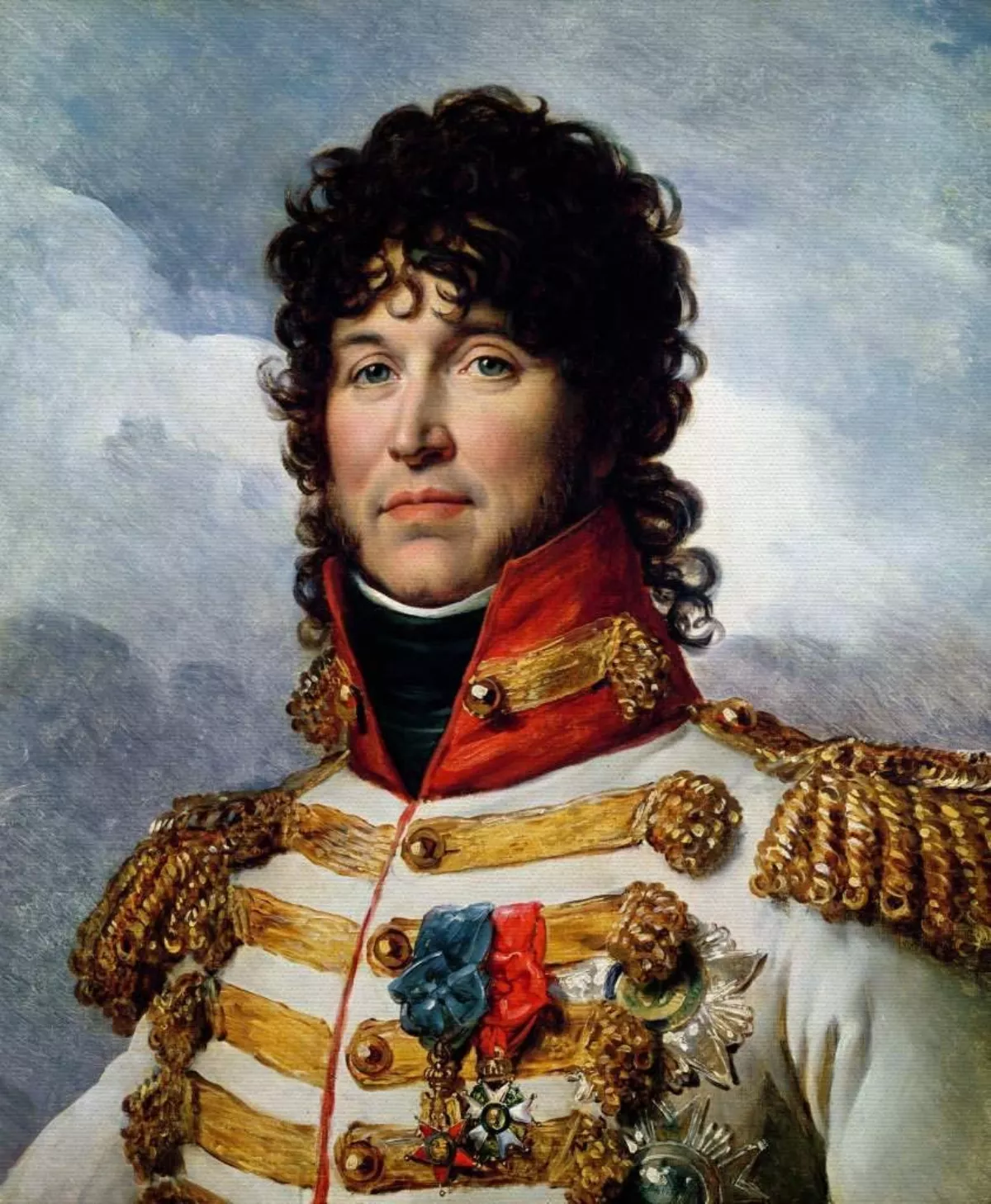 1.
1. Joachim Murat was the first Prince Murat, Grand Duke of Berg from 1806 to 1808, and King of Naples as Joachim-Napoleon from 1808 to 1815.

 1.
1. Joachim Murat was the first Prince Murat, Grand Duke of Berg from 1806 to 1808, and King of Naples as Joachim-Napoleon from 1808 to 1815.
Joachim Murat distinguished himself under the command of General Napoleon Bonaparte on 13 Vendemiaire, when he seized a group of large cannons and was instrumental in suppressing the royalist insurrection in Paris.
Joachim Murat became Napoleon's aide-de-camp and commanded the cavalry during the French campaigns in Italy and Egypt.
Joachim Murat played a pivotal role in the Coup of 18 Brumaire, which brought Napoleon to political power.
Joachim Murat was named a Marshal of the Empire on the proclamation of the French Empire.
Joachim Murat took part in various battles including those of Ulm, Austerlitz, Jena and Eylau, where he led a famous massed cavalry charge against the Russians.
In 1806, Joachim Murat was appointed Grand Duke of Berg, a title he held until 1808 when he was named King of Naples.
Joachim Murat continued to serve Napoleon during his Russian and German campaigns but abandoned the Grande Armee after the Battle of Leipzig to save his throne.
In 1815, Joachim Murat launched the Neapolitan War against the Austrian Empire but was decisively defeated at Tolentino.
Joachim Murat fled to Corsica and then made a last-ditch attempt to recover his throne, but was taken prisoner by King Ferdinand IV of Naples.
Joachim Murat was tried for treason and sentenced to death by firing squad in Pizzo.
Joachim Murat's father was Pierre Murat-Jordy, an affluent yeoman, innkeeper, postmaster and churchwarden.
Joachim Murat's mother was Jeanne Loubieres, the daughter of Pierre Loubieres and his wife Jeanne Viellescazes.
Joachim Murat's parents intended that he pursue a vocation in the church.
Joachim Murat was taught by the parish priest, after which he won a place at the College of Saint-Michel at Cahors when he was ten years old.
Joachim Murat then entered the seminary of the Lazarists at Toulouse.
In 1792, Joachim Murat joined the Constitutional Guard, but left it that same year.
Joachim Murat's departure was attributed to various causes, including his constant quarreling and dueling, although he claimed he left to avoid punishment for being absent without leave.
An ardent Republican, Joachim Murat wrote to his brother in 1791 stating he was preoccupied with revolutionary affairs and would sooner die than cease to be a patriot.
Bonaparte tasked Joachim Murat, who had offered himself voluntarily, with the gathering of artillery from a suburb outside the control of the government's forces.
Joachim Murat managed to take the cannons of the Camp des Sablons and transport them to the centre of Paris while avoiding the rioters.
In 1796, Joachim Murat went with Bonaparte to northern Italy, initially as his aide-de-camp, and was later named commander of the cavalry during the many campaigns against the Austrians and their allies.
Joachim Murat commanded the cavalry of the French Egyptian expedition of 1798, again under Bonaparte.
Joachim Murat married Caroline Bonaparte, with whom he shared the same birthday, in a civil ceremony on 20 January 1800 at Mortefontaine and in a religious ceremony on 4 January 1802 in Paris, thus becoming a son-in-law of Letizia Ramolino as well as brother-in-law to Napoleon Bonaparte, Joseph Bonaparte, Lucien Bonaparte, Elisa Bonaparte, Louis Bonaparte, Pauline Bonaparte and Jerome Bonaparte.
Joachim Murat was made Prince of the Empire and Admiral of the Empire in 1805, despite having very little knowledge about naval warfare.
Joachim Murat proved to be equally useful in the Russian campaign of 1812, where he distinguished himself as the best cavalry commander of the at battles such as Smolensk and Borodino.
Joachim Murat failed to forge caulkin shoes for the horses to enable them in the retreat to traverse roads that had become iced over.
Joachim Murat continued to serve Napoleon during the German Campaign of 1813.
On 30 March 1815, Joachim Murat's troops arrived in Rimini, where they were hosted by the Battaglini counts.